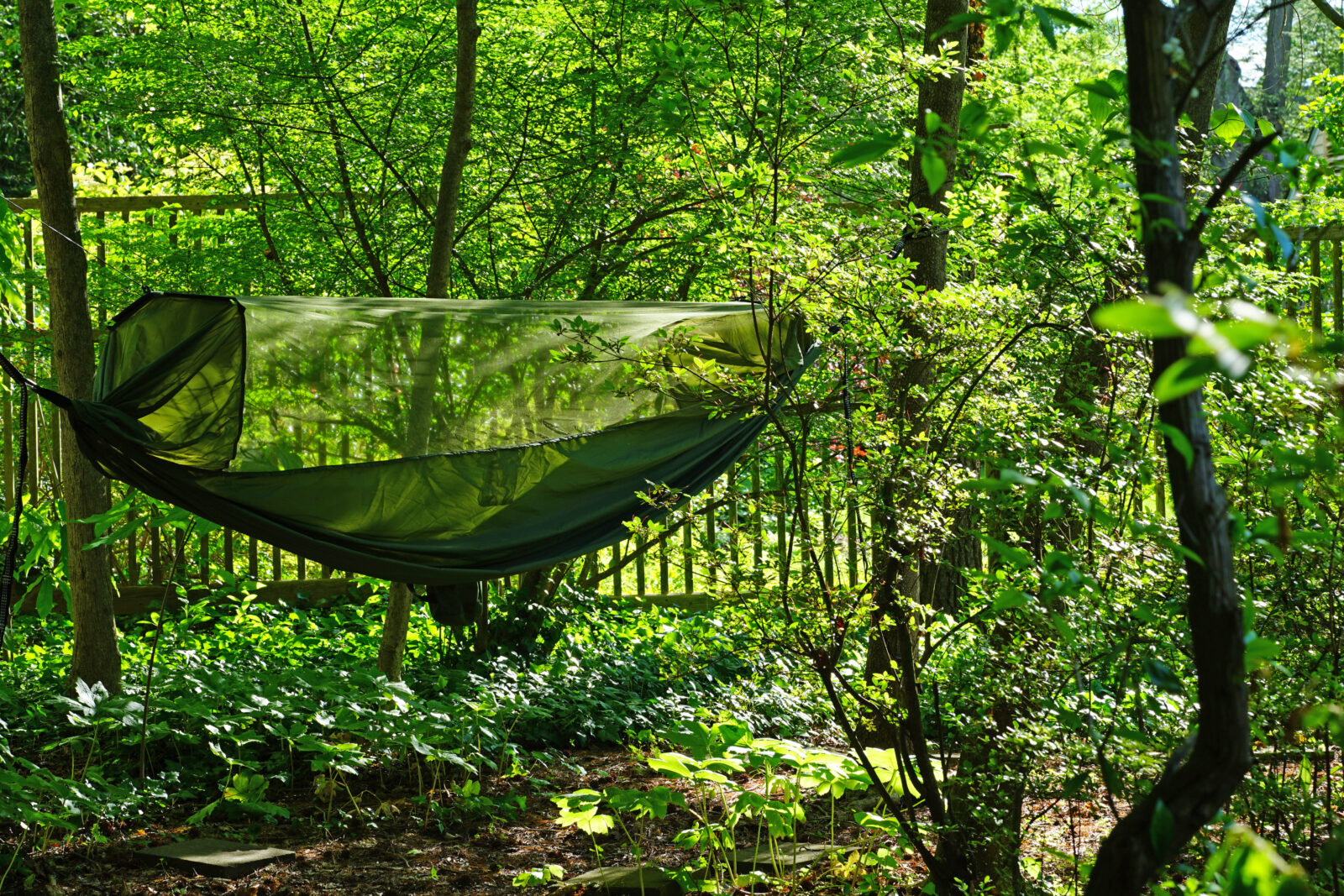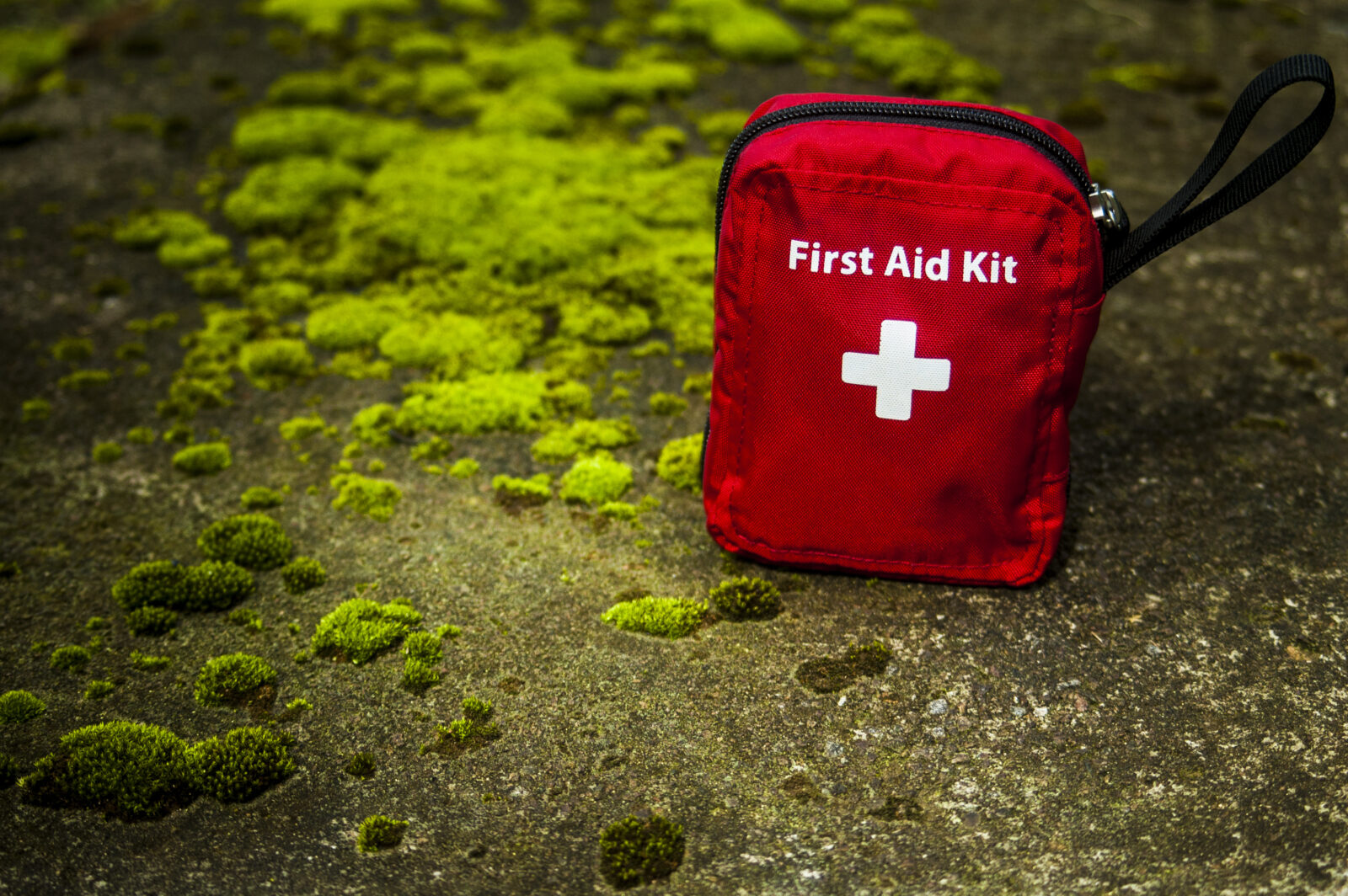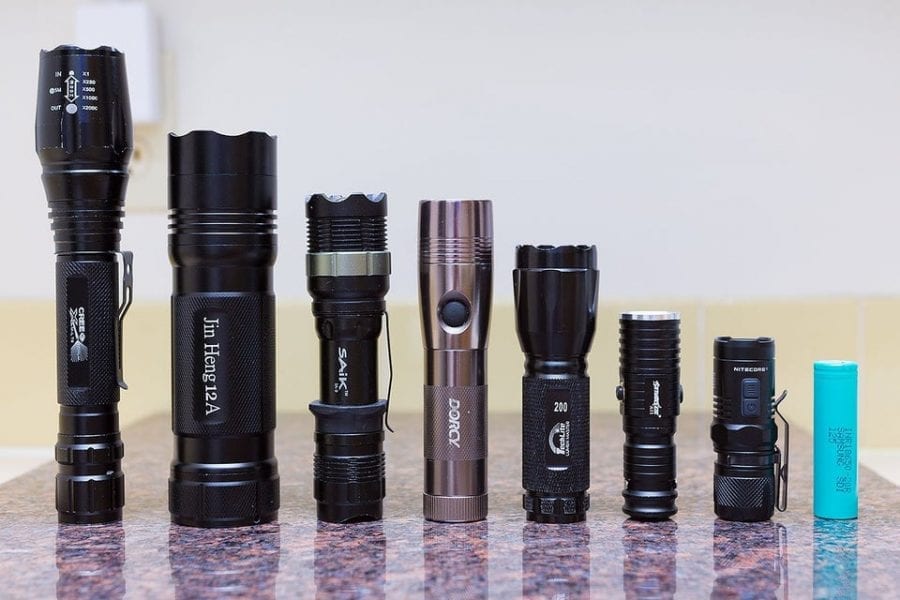Hoping to avoid snakes on your next camping trip?
We understand.
Not everyone is a fan of snakes and, even if you do fancy yourself as a snake fanatic, you still might not want them slithering around your campsite at night.
While there’s no guaranteed way to keep snakes away from your campsite, there are a few steps out there that you can take to minimize your chances of a snake encounter.
To get you started, here are 7 tips for avoiding snakes during your next camping trip.
1. Choose a snake-free camping location
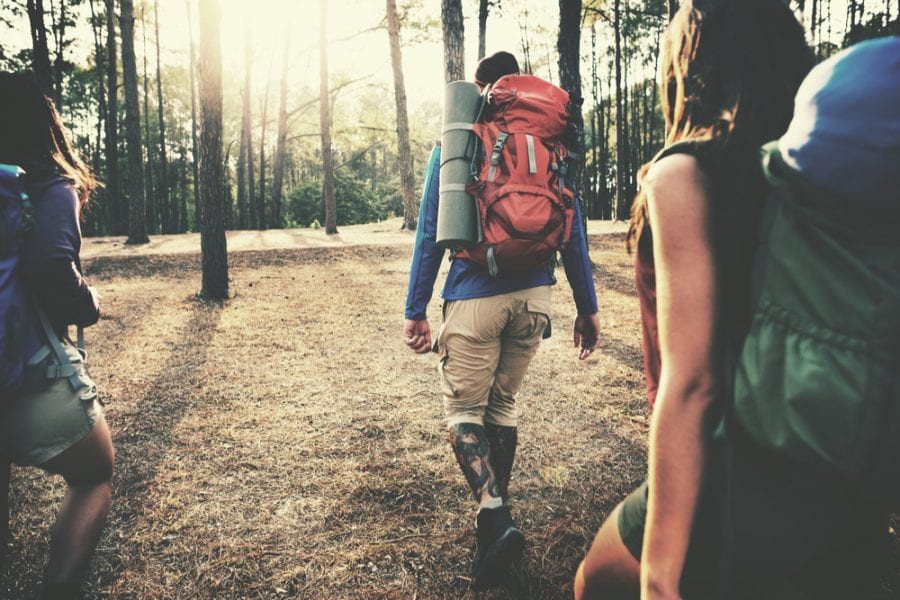
If you truly want to avoid snakes, camping in a location that just doesn’t have any is likely your best option. But, while there are technically only two states in the US – Alaska, and Hawaii that don’t have any resident snakes, there are plenty of parks and recreation areas in the country that don’t have venomous snakes.
For example, places like Olympic National Park and Acadia National Park are less likely to have venomous snakes than places like Death Valley or Joshua Tree National Park.
That’s because the bulk of North America’s venomous serpents prefer to live in hot, dry locales, rather than cold, wet places. So, if you want to avoid venomous snakes at all costs, then heading north to colder climates is often a good idea.
Read More : How to Pick the Perfect Campsite
2. Avoid camping in forested or bouldery terrains
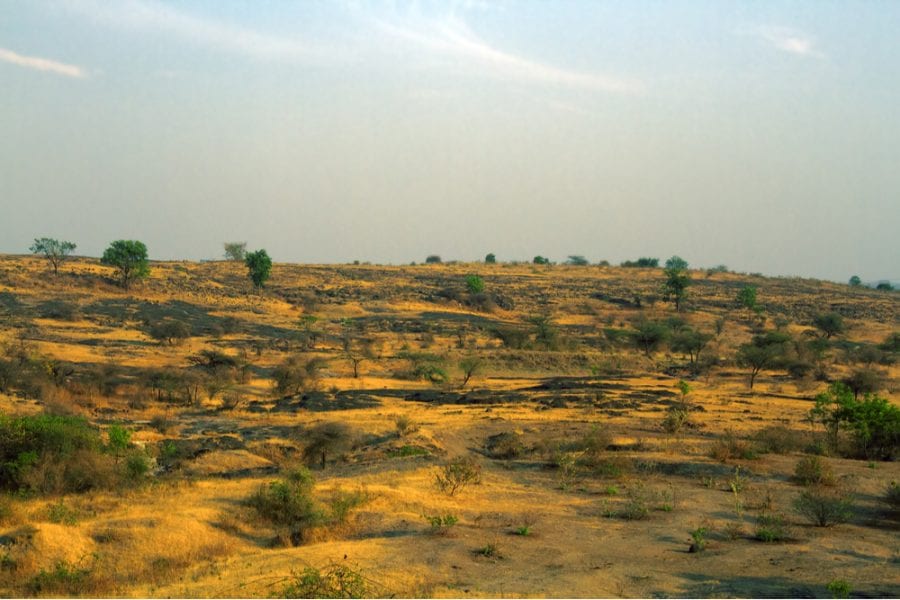
In situations where you simply can’t eliminate the possibility of a snake encounter by avoiding known snake-inhabited regions, you can minimize your chances of encountering a snake by choosing a quality campsite.
Indeed, avoiding campsites in ideal snake habitats can reduce the likelihood that one will slither into your camp at night.
For example, snakes prefer to hang out in bouldery or forested terrain where there are plenty of rocks and leaves for them to hide under. So, placing your 2 person tent in a wide-open campsite is often better than pitching a 6 person tent in a shady forested locale from a snake-avoidance standpoint.
3. Store your food properly
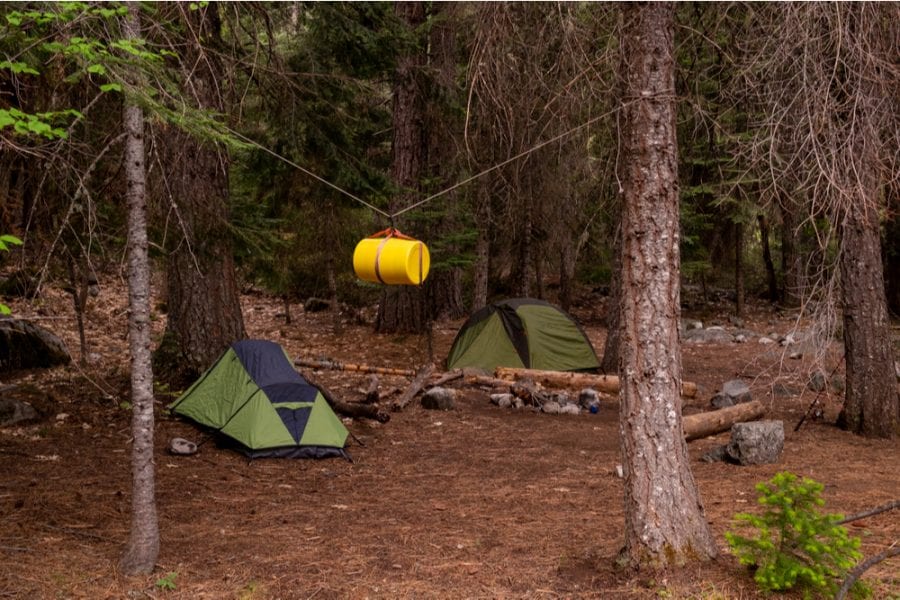
Technically speaking, snakes aren’t very attracted to our tasty human food. So, there’s not really a reason to snake-proof your food like you would when camping in bear terrain in Yosemite National Park.
However, even though snakes don’t want to eat our food, rodents and other small critters do. Since snakes tend to feed on these rodents, having mice, chipmunks, and other critters running around your camp is a sure-fire way to invite serpents to your tent area.
Therefore, storing your food properly so that it’s out of reach of rodents can indirectly deter snakes from your campsite.
That being said, you don’t need to go as in-depth with your food storage in snake territory as you might in bear habitat. But, keeping food in hard-sided coolers and in other rodent-proof containers is ideal.
4. Keep a tidy campsite
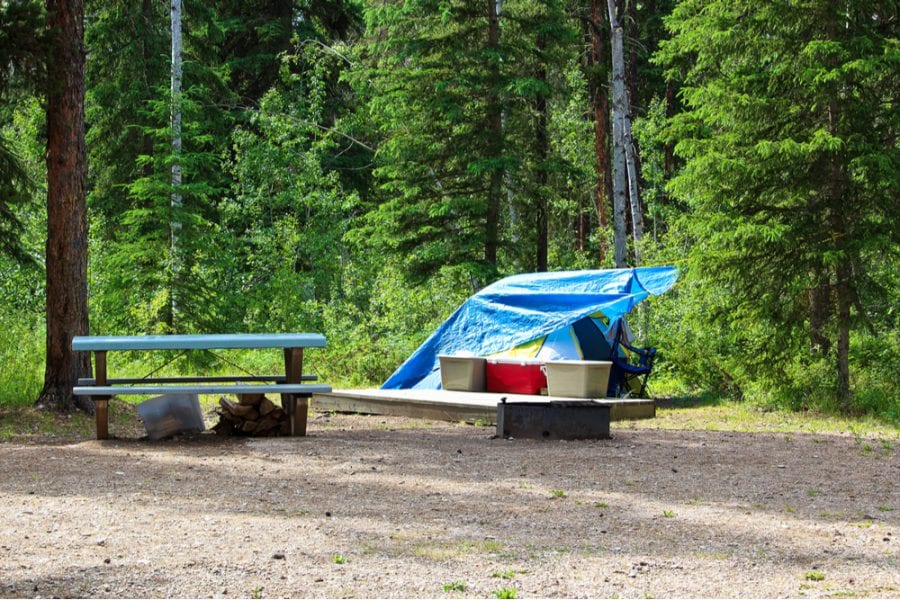
In addition to storing your food properly, you’ll also want to keep a tidy campsite at all times while camping in snake territory.
Of course, messy campsites on their own aren’t going to attract snakes. But, having lots of small objects strewn about around your 2 room tent is a great way to create ideal hiding spots for snakes and other critters.
So, to combat this problem, keep your camping area neat and tidy. Doing things like stacking firewood, putting away camp chairs and camp tables when not in use, and packing up your gear into your hiking backpack each night can help ensure there’s nowhere for snakes to hide at your campsite.
Read More : 11 Campsite Etiquettes Every Camper Should Know
5. Make noise while in camp
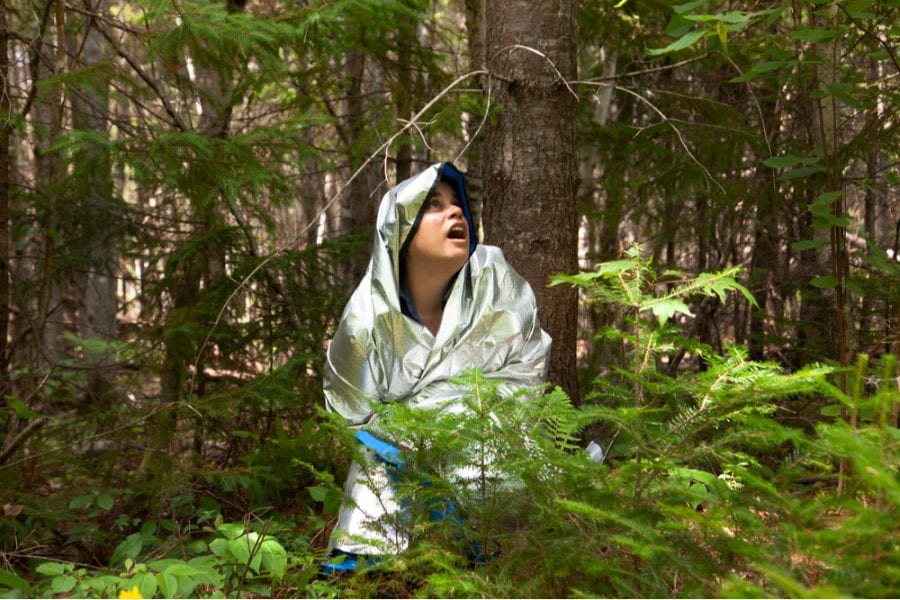
As a general rule, snakes want nothing to do with us humans. In reality, snakes are often just as afraid of us as we are of them, and they only attack us out of fear for their own lives.
Indeed, many snake bites happen because a snake was startled by a human quietly walking down a trail. So, making a decent amount of noise while in camp can often be enough of a deterrent to keep snakes away from your tent area.
That being said, it’s generally not kind to your fellow campers to make excessive amounts of noise in your campsite. But, holding a casual conversation, playing the guitar, or games around the campfire can help reduce the chances that a snake wants to venture into your camping area.
6. Stay away from snake repellents
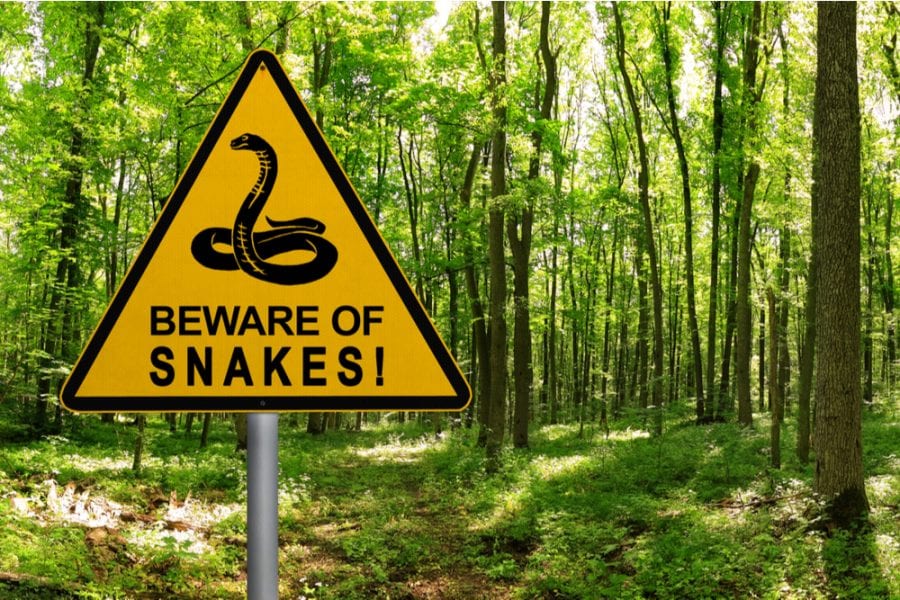
If you spend enough time online, you’ll eventually run across a number of different so-called snake repellent products that you can buy in order to keep serpents out of your home and campsite.
However, while these repellents claim to magically keep snakes away from your campsite, the reality is that they generally don’t work. Many snake repellents boast marketing claims that simply haven’t been demonstrated scientifically.
To make matters worse, many snake repellents are dangerous for humans, pets, and the environment – to say nothing of the snake itself.
Thus, it’s generally best to avoid the use of snake repellents. Instead, proper snake avoidance techniques and keeping your distance from any snakes on the trail is usually your best bet when it comes to keeping snakes out of your campground.
7. Check your tent before going inside
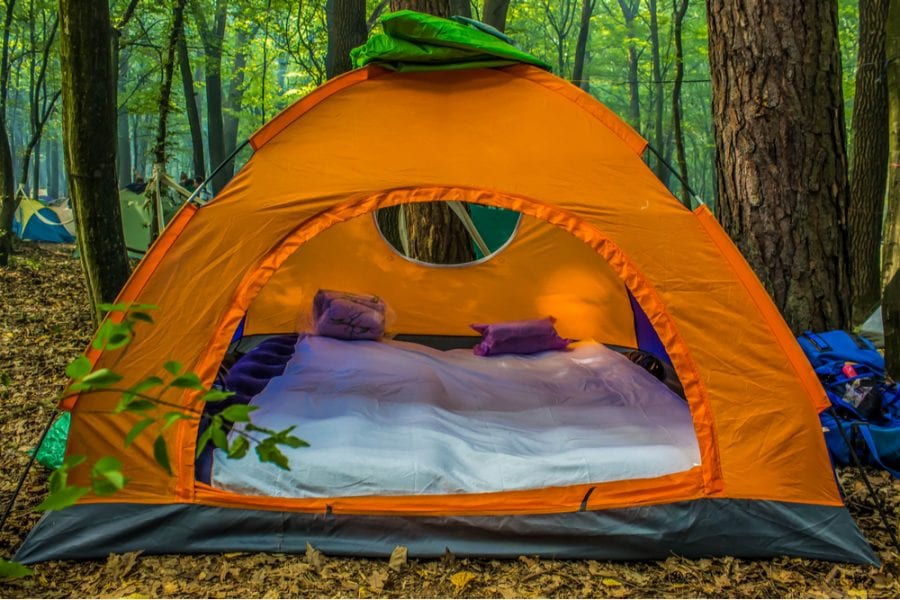
Last but not least, always check your tent for snakes before going inside of it for the night.
At the end of the day, regardless of what you do to keep them out of your campsite, snakes are smart, resourceful creatures that will do what they need to do to find a comfy place to sleep.
Whether that location is your 4 person tent, your hiking boots, or the inside of your summer sleeping bag, it’s best to always check your gear for rogue serpents before using it while in snake country.
Gaby Pilson
Gaby is a professional mountain guide with a master’s degree in outdoor education. She works primarily in the polar regions as an expedition guide, though she can be found hiking, climbing, skiing, sailing, or paddling in some of the world’s most amazing places when not at work.
